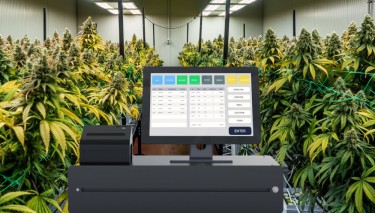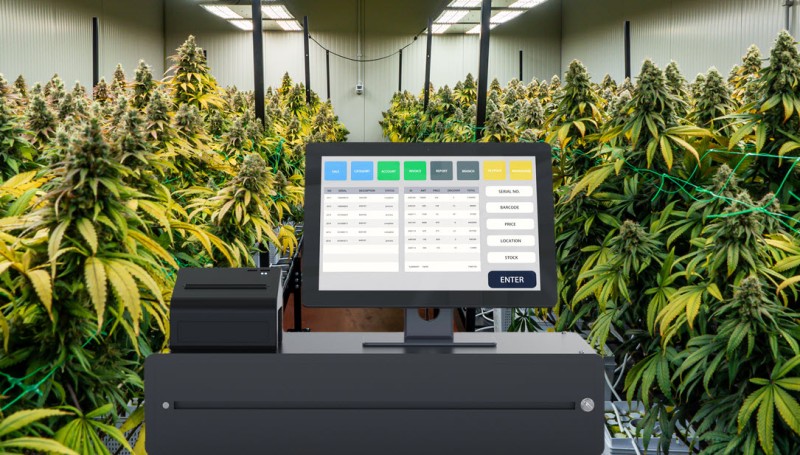
Dispensaries operating in the United States, particularly those dealing with cannabis, often face questions regarding the sharing of customer information with government entities. This concern arises from the complex interplay between state and federal laws surrounding cannabis, which remains illegal at the federal level despite being legalized in many states for medical and recreational use. Understanding how dispensaries manage customer data and their obligations to share information with government agencies is crucial for consumers seeking privacy and compliance.
Understanding Dispensaries
What is a Dispensary?
A dispensary is a retail establishment that sells cannabis products, including flowers, edibles, oils, and other cannabis-derived items. These businesses can operate under different legal frameworks depending on state laws—either for medical use, recreational use, or both.
Types of Dispensaries
-
Medical Dispensaries: Operate under state laws allowing patients with qualifying conditions to purchase cannabis for therapeutic use.
-
Recreational Dispensaries: Allow adults over a certain age (usually 21) to purchase cannabis for personal use without a medical prescription.
Overview of Cannabis Legalization
The legalization of cannabis has created a burgeoning industry across several states, with projections indicating that the market could reach $76.39 billion by 2030[4]. As dispensaries emerge, they must navigate a regulatory landscape that varies significantly from state to state. This includes understanding what information they are required to collect and whether they must share this data with government authorities.
Information Collection Practices
When customers enter a dispensary, they are typically required to provide certain personal information. This often includes:
-
Full Name
-
Date of Birth
-
State Identification Number
This information is collected primarily for compliance with state laws, which aim to prevent unauthorized sales and ensure that only qualified individuals access cannabis products.
State-Specific Regulations
-
Missouri: Dispensaries in Missouri must share sales data with the Missouri Department of Health and Senior Services to ensure compliance with state regulations. However, patient-specific information remains confidential and is not shared with federal agencies.
-
Colorado: In Colorado, dispensaries are not mandated to collect extensive personal information beyond verifying age. The state prohibits sharing personal data with third parties without customer consent.
-
Nevada: Nevada’s laws require dispensaries to track certain information for regulatory compliance but emphasize protecting consumer privacy by limiting data sharing with government entities.
Privacy Protections
Despite the collection of personal information, various laws and regulations are designed to protect consumer privacy:
-
State Privacy Laws: Many states have enacted strict privacy laws that prevent dispensaries from sharing customer data without explicit consent. For instance, in California, personal data collected by dispensaries is generally prohibited from being shared without customer approval
-
Data Security Measures: Dispensaries are also required to implement robust security measures to protect customer data from unauthorized access. This includes using encrypted databases and secure storage systems.
Risks of Data Sharing
Although dispensaries generally do not have an incentive to share customer information with the government, certain risks exist:
-
Federal Investigations: If a dispensary were to face federal scrutiny or shutdown, records could potentially be accessed by federal authorities. However, this situation is rare and often linked to broader regulatory compliance issues rather than routine data sharing.
-
Legal Gray Areas: The ongoing conflict between state legalization and federal prohibition creates legal gray areas where consumer data could inadvertently be exposed during interactions with government agencies.
Why Do Dispensaries Share Information?
Dispensaries share information for several reasons:
-
Compliance: To adhere to state laws and regulations.
-
Taxation: To ensure accurate tax reporting and payment.
-
Public Health: To monitor usage trends and ensure consumer safety.
Challenges Faced by Dispensaries
Dispensaries operate within a highly regulated environment, particularly in the cannabis industry, where laws can differ significantly from one state to another. This regulatory complexity poses several challenges for dispensaries, which include:
-
Understanding Diverse State Regulations
Each state that has legalized cannabis has its own set of rules governing everything from licensing and operational procedures to product labeling and advertising. Dispensaries must invest time and resources to fully understand these regulations, which can vary widely. For example, some states may require extensive documentation for medical cannabis patients, while others may have more lenient requirements for recreational users.
-
Increased Operational Costs
Compliance with these regulations often necessitates additional operational expenditures. Dispensaries may need to hire compliance officers or legal consultants to ensure they adhere to the laws, implement robust inventory management systems, and train staff on regulatory requirements. These costs can accumulate quickly, impacting the overall profitability of the business.
-
Potential Penalties for Non-Compliance
Failure to comply with state regulations can result in severe consequences for dispensaries. This includes hefty fines, the suspension or revocation of licenses, and even criminal charges in extreme cases. Additionally, misreporting data whether intentional or accidental can lead to audits and investigations by state authorities, further straining resources and potentially damaging the dispensary’s reputation.
-
Constantly Evolving Laws
The legal landscape surrounding cannabis is continually changing as new legislation is introduced and existing laws are amended. Dispensaries must stay informed about these changes to avoid unintentional violations. This requires ongoing education and adaptability, which can be both time-consuming and costly.
-
Interstate Discrepancies
For dispensaries operating in multiple states, the challenge is compounded by the need to navigate different regulatory environments simultaneously. Each state’s unique requirements can create logistical hurdles, complicating inventory management, marketing strategies, and customer service practices.
Balancing Privacy and Compliance
Dispensaries must find a balance between complying with regulatory requirements and protecting customer privacy. Challenges include:
-
Ensuring that necessary reporting does not compromise customer confidentiality.
-
Implementing secure systems that facilitate compliance without exposing sensitive data.
The Role of Technology in Data Management
Point-of-Sale Systems
Modern dispensaries utilize sophisticated point-of-sale (POS) systems to manage transactions efficiently. These systems often include features such as:
-
Customer Relationship Management (CRM): Tools to track customer preferences and purchase history while ensuring data security.
-
Inventory Management: Real-time tracking of stock levels to comply with reporting requirements.
Consumer Awareness and Best Practices
Consumers should remain vigilant about their privacy rights when visiting dispensaries:
-
Inquire About Policies: Before providing any personal information, customers should ask about the dispensary’s data-sharing policies and how their information will be used.
-
Understand State Laws: Familiarizing oneself with state-specific regulations regarding cannabis can empower consumers to make informed decisions about their privacy.
-
Consider Payment Methods: Some dispensaries may require additional personal information for credit card transactions. Customers should weigh the benefits against potential privacy concerns before proceeding.
Conclusion
While dispensaries collect personal information primarily for compliance with state regulations, they generally do not share this data with government agencies without explicit consent. State laws provide significant protections for consumer privacy; however, the federal status of cannabis introduces complexities that consumers should be aware of. As the industry continues to evolve, maintaining transparency about data handling practices will be crucial for fostering trust between dispensaries and their customers.







